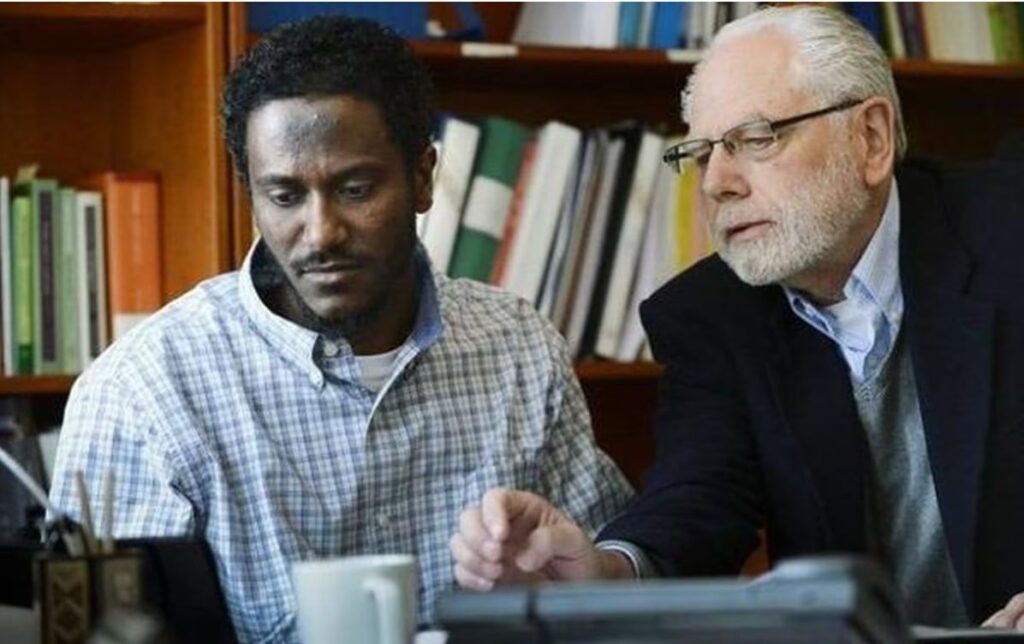A federal judge Wednesday said he’ll allow most of the civil rights claims filed by a man placed on the No Fly List without notice to proceed in court in Oregon.
U.S. District Judge Michael W. Mosman rejected the government’s renewed motion to dismiss the case.
Amy Powell, the attorney for the government, argued that Yonas Fikre had been removed from the list nearly a decade ago and it’s unlikely he’ll ever be put back on it.
The government also for the first time in the case turned over a classified document for the sole viewing of the judge to try to bolster its stance after the
U.S. Supreme Court revived Fikre’s suit
in March 2024.
Mosman said he was not considering the classified material in making his decision from the bench.
Fikre has argued that the government violated his due process rights by placing him on the No Fly List without notice and for inappropriate reasons, including his religious beliefs. He alleged that FBI agents interrogated him about a mosque in Portland he once attended and threatened to keep him on the No Fly List unless he agreed to serve as an informant against other worshippers.
The government has denied placing Fikre on the list based on his religion or national origin.
In addition, federal attorneys said, the circumstances have changed and Fikre no longer faces travel restrictions.
He doesn’t currently meet the criteria for inclusion on the list and is unlikely to again, Powell said. The government has never publicly revealed why Fikre was on the list in the first place.
Attorney Gadeir Ibrahim Abbas, representing Fikre, maintained that the government wanted to coerce Fikre to become an informant.
He urged Mosman not to consider the “secret” material that the government presented for the judge’s eyes only, calling it “unreliable, untested” information.
Even if Fikre is no longer on the list, his placement on it and his prior inability to fly back to the United States left a stigma he can’t erase, Abbas said. Fikre deserves relief from the stain on his reputation, Abbas said.
Abbas also argued that Fikre’s prior placement on the list is still reflected in a government database and should be ordered destroyed.
Powell countered that the No Fly List and terror watchlists are disseminated only among government and law enforcement officials and not made public, so no alleged stigma existed until Fikre held a press conference about it and sued the government.
Mosman said he’d issue a written opinion on his ruling in the future.
In 2018, the 9th U.S. Circuit Court of Appeals revived Fikre’s lawsuit, finding that Mosman shouldn’t have previously dismissed his lawsuit simply because the FBI had removed him from the list while his lawsuit was pending.
The FBI petitioned for the U.S. Supreme Court to decide whether its removal of Fikre from the No Fly List makes Fikre’s claims moot.
Last year, the
Supreme Court kept Fikre’s suit
against the government alive, finding that Fikre has a valid case.
Although federal authorities have insisted in court that Fikre won’t go back on the list based on his past conduct, that doesn’t address whether the government might put him back on if he engages in similar conduct in the future, the high court ruled.
Fikre’s troubles began in 2010 when he was in Sudan visiting family, according to his lawyers and court records. There, he said he was approached by two Portland-based FBI agents. They pressured him to become an informant at the Portland mosque Masjed As-Saber, offered him money and warned there would be “negative repercussions” if he did not, according to a letter his lawyers wrote to the Justice Department.
In June 2011, while in the United Arab Emirates, Fikre was abducted and taken to a torture facility near Abu Dhabi, his lawyers wrote in the letter. For the next three months, a blindfolded Fikre was tortured — although he does not know by whom — and asked questions similar to those posed in Sudan.
After about three months, Fikre was released. He was not allowed to fly back to the United States and he made his way to Sweden instead, where he sought asylum.
— Maxine Bernstein covers federal court and criminal justice. Reach her at 503-221-8212, mbernstein@oregonian.com, follow her on X
@maxoregonian
, on Bluesky
@maxbernstein.bsky.social
or on
LinkedIn




More Stories
Federal judge in Oregon allows man’s challenge of no-fly status to proceed
Federal judge in Oregon allows man’s challenge of no-fly status to proceed
Federal judge in Oregon allows man’s challenge of no-fly status to proceed